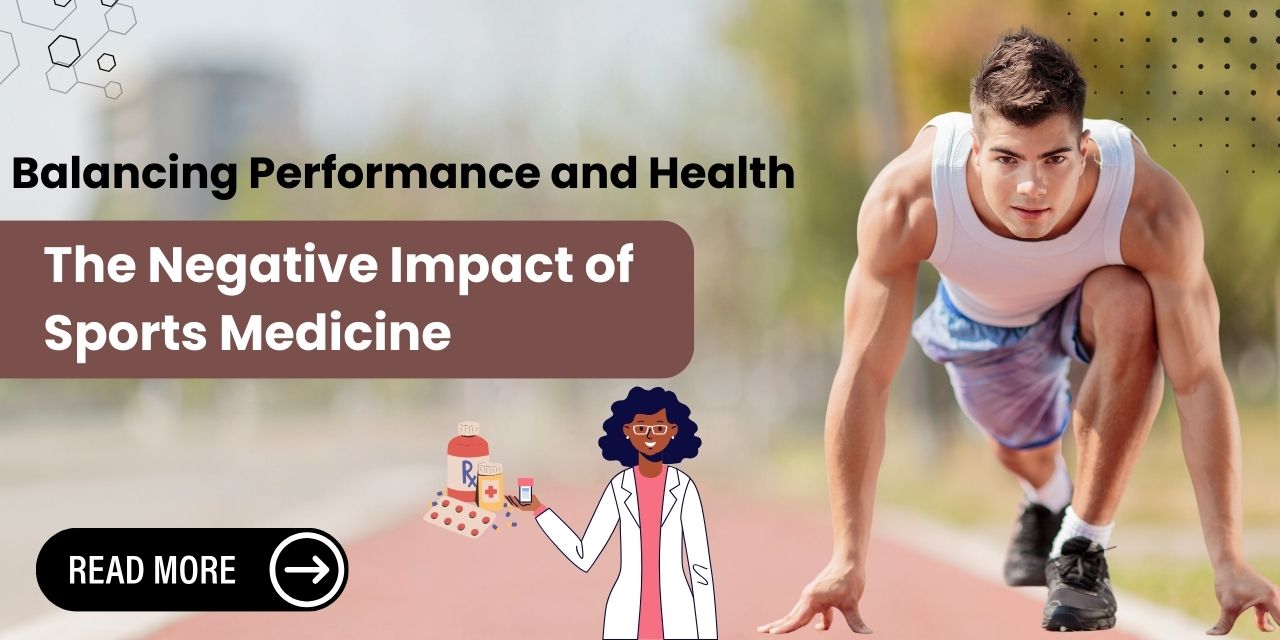Sports medicine is designed to enhance athletic performance and recovery, but it’s important to recognize that it can sometimes have adverse effects on orthopedic health. Here’s a look at some potential negative impacts.
Overuse Injuries and Their Consequences
- Overuse Injuries
One of the main concerns in sports medicine is the risk of overuse injuries. Athletes often push their bodies to the limit, which can lead to stress fractures, tendinitis, and other chronic conditions. Repeated strain on the same body part without adequate rest can exacerbate orthopedic issues rather than resolve them.
- Inappropriate Use of Medications
The use of medications, such as corticosteroids, is common in sports medicine to manage pain and inflammation. However, over-reliance on these drugs can weaken bones and joints, making them more susceptible to injuries. Long-term use can lead to complications such as osteoporosis and joint deterioration.
- Imbalanced Rehabilitation Programs
Sports medicine often focuses heavily on performance and less on holistic rehabilitation. This can result in imbalanced rehab programs that prioritize strength over flexibility or fail to address underlying biomechanical issues. Such an approach can lead to improper healing and long-term orthopedic problems.
- Risk of Surgical Complications
In some cases, sports medicine may involve surgical interventions to repair injuries. While these procedures can be effective, they also carry risks. Complications from surgery can include infection, poor wound healing, and the need for additional procedures, which may negatively impact orthopedic health.
Frequently Asked Questions
👉 What are overuse injuries, and how do they affect orthopedic health?
Overuse injuries occur from repetitive stress on a specific body part, leading to conditions like stress fractures and tendinitis. These injuries can worsen orthopedic health if not managed properly with rest and rehabilitation.
👉 How can medications in sports medicine negatively impact orthopedic health?
Medications like corticosteroids can provide short-term relief but may weaken bones and joints over time, increasing the risk of fractures and joint issues.
👉 What should a balanced rehabilitation program include to prevent orthopedic problems?
A balanced rehab program should address strength, flexibility, and proper biomechanics. It should also include rest and recovery to ensure comprehensive healing and reduce the risk of further injury.
👉 What are the common risks associated with orthopedic surgeries in sports medicine?
Risks include infection, poor wound healing, and complications requiring additional surgeries. These risks can adversely affect overall orthopedic health and recovery.
👉 What should I bring for my first appointment at Raffels Hospital Panchkula?
For your first appointment, bring any previous medical records, imaging studies, and a list of current medications. It’s also helpful to have a summary of your symptoms and medical history.
Conclusion
While sports medicine plays a crucial role in enhancing athletic performance and managing injuries, it’s essential to be aware of its potential negative impacts on orthopedic health. Issues such as overuse injuries, inappropriate medication use, imbalanced rehabilitation programs, and surgical complications can adversely affect long-term orthopedic well-being.For those seeking comprehensive and balanced orthopedic care, consider consulting experts at the best ortho hospital in Panchkula, Raffels Hospital Panchkula. With a focus on both treating and preventing orthopedic issues, Raffels Hospital offers advanced treatment options and personalized care to ensure optimal health and recovery. Addressing these concerns with the right medical support can help mitigate the adverse effects of sports medicine and promote overall orthopedic health.To get more information please contact us on: +919356728000













